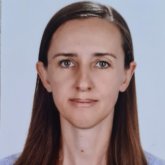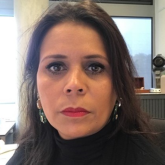PhD position on Neuro-symobolic AI for microfabricated fluidic sensors
Do you want to work at the forefront of research and development in a highly relevant area of Neuro-symobolic AI for tiny sensors? Would you like to collaborate with researchers with expertise in a scientific field outside of deep learning to build AI systems that can perform previously impossible tasks? Then this might be the vacancy you have been looking for!
The Pervasive Systems research group at the University of Twente is looking for a PhD candidate to perform research and development on a multidisciplinary project involving Neuro-symobolic AI and microfabricated fluidic sensors.
The main research objectives are:
- Conduct research in neuro-symbolic AI for microfabricated fluidic sensors, including but not limited to designing and implementing lightweight but accurate algorithms and models, conducting experiments, analyzing data, and interpreting results.
- Collaborate with the team to develop and optimize microfabrication processes for the sensors.
- Develop and test new sensor designs and configurations, and evaluate their performance.
- Write technical reports and research papers for publication in top-tier journals and conferences (Percom, Ubicomp, IJCAI, AAAI, NIPS, ICML).
The prospective candidates are expected to perform high-quality and internationally visible research that gets published at top-tier conferences and journals. Candidates will work at the Pervasive Systems Research group, Department of Computer Science, Faculty of Electrical Engineering, Mathematics and Computer Science (EEMCS) at the University of Twente in the Netherlands. The candidates are expected to collaborate with project partners including the Integrated Devices and Systems (IDS) group, Faculty of Electrical Engineering, Mathematics and Computer Science (EEMCS), at the University of Twente in the Netherlands.
The project
While a new generation of integrated sensor systems has been developed fast last years, it is now a necessity to explore recent work in symbolic Artificial Intelligence (AI) to overcome these limitations and allow for real-time fluid data processing by using a combination of deep neural networks and physics in flow sensing. By embedding human knowledge of physical quantities into deep neural networks, AI would be able to learn quicker and better how to use the sensing structures on the chip to give a physically relevant output signal. Using deep symbolic AI on microfluidic sensor data is therefore expected to cause a breakthrough in the easy design and use of cutting-edge multiparameter sensing systems. Therefore, the goal of this project is the realization of a demonstrator system containing multiple sensing structures together with a trained neural network, which outperforms the state-of-the-art multiparameter systems, for real-time quality control of products made in chemical or pharmaceutical micro reactors, or in the food industry. Sub-goals include the generation of novel deep symbolic AI that can combine traditional physics rules with modern deep learning techniques to effectively deal with raw sensor data, verify physical constraints, understand the complex physical effects in microfabricated fluid channels, and improve future chip designs based on existing and novel (hidden) causal relations found through AI model interpretability.
The vacancies are within the scope of the MOSAIC - enhancement of MicrOfluidic Sensing with Artificial IntelligenCe project, and is a collaboration between famous research groups of University of Twente and industrial companies. The project is funded by the national research foundation NWO, together with supporting partners from the industry.
Information and application
Please send your application before December 1, 2024 via the ‘Apply now’ button, and include:
- A cover letter (maximum 2 pages of A4), emphasizing your specific interest, qualifications, and motivations to apply for this position;
- A Curriculum Vitae, including a list of all courses attended and grades obtained, and, if applicable, a list of publications;
- A short description (maximum 1 page of A4) of your MSc research.
The selection procedure includes an interview and scientific presentation.
For additional information about these positions, you are encouraged to contact Dr. Le Viet Duc via v.d.le@utwente.nl, Pervasive Systems Research group, Department of Computer Science, University of Twente
About the organisation
The faculty of Electrical Engineering, Mathematics and Computer Science (EEMCS) uses mathematics, electronics and computer technology to contribute to the development of Information and Communication Technology (ICT). With ICT present in almost every device and product we use nowadays, we embrace our role as contributors to a broad range of societal activities and as pioneers of tomorrow's digital society. As part of a people-first tech university that aims to shape society, individuals and connections, our faculty works together intensively with industrial partners and researchers in the Netherlands and abroad, and conducts extensive research for external commissioning parties and funders. Our research has a high profile both in the Netherlands and internationally. It has been accommodated in three multidisciplinary UT research institutes: Mesa+ Institute, TechMed Centre and Digital Society Institute.





